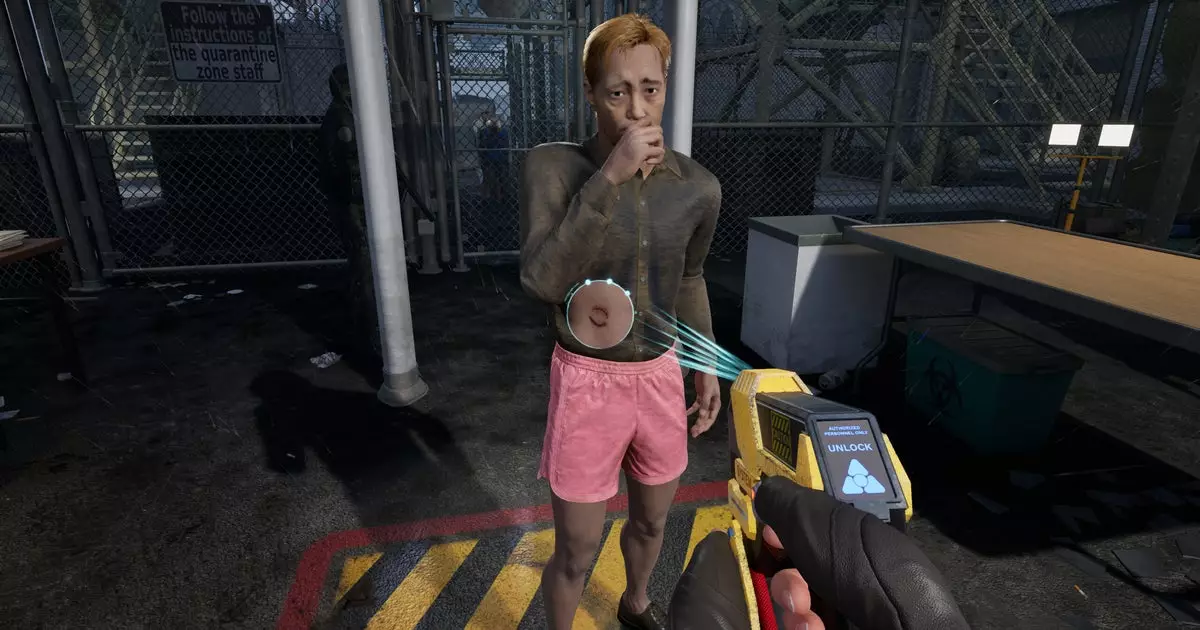In modern gaming, few genres push players to confront moral ambiguity as effectively as survival simulation titles. Quarantine Zone: The Last Check exemplifies this by immersing players in the tense environment of a government checkpoint during a zombie outbreak. As an agent equipped with hazmat gear, you are tasked with the morally complex duty of scrutinizing refugees and deciding their fate—admit, quarantine, or eliminate. Unlike traditional games that emphasize violence or resource hoarding, this experience challenges players to navigate ethical gray areas, highlighting the importance of human judgment when lives are on the line.
The game’s mechanics compel players to perform detailed inspections—using UV flashlights, thermometers, and other diagnostic tools—to determine if individuals are infected. However, the challenge extends beyond mere objectivity; players must interpret ambiguous signs and decide whether the groaning woman with a fever is simply ill or a deadly threat. This form of decision-making exposes players to the emotional weight of their choices, emphasizing that in crises, morality often resides in the balance between cautious pragmatism and ruthless efficiency. It pushes one to critically evaluate how biases, assumptions, and limited information influence our instincts for justice and mercy.
From a broader perspective, Quarantine Zone prompts reflection on real-world border politics and immigration issues—though not explicitly. It acts as a mirror for society’s tendency to categorize, scrutinize, and sometimes dehumanize those seeking safety during chaos. The game doesn’t shy from depicting the bleakness of such choices but instead invites us to consider the complexities behind each decision: Should you take a chance on the groaning woman who might only be indigent or make a harsher call to quarantine the seemingly dangerous? It becomes a powerful reminder that even in fictional settings, the ethics surrounding exclusion and inclusion are nuanced, sensitive, and impactful.
Strategic Depth Meets Psychological Tension
Beyond the moral dilemmas, Quarantine Zone impresses with its strategic layers. Managing limited resources—test kits, inspection tools, and personnel—requires more than just quick reflexes; it demands foresight and prioritization. Every individual examined represents a potential outbreak or a missed opportunity for harmless civilians. As the game progresses, the threat landscape intensifies with waves of zombies and increasingly suspicious refugees, forcing players into a constant state of tension. Deciding whether to admit a person based on flimsy evidence or to quarantine someone with subtle symptoms can mean the difference between safe passage and catastrophe.
This balancing act elevates gameplay from simple decision trees to a form of psychological warfare, where every choice has ripple effects. Fail to keep the checkpoint secure, and you face potential breaches and the chaos of a zombified crowd. Oversee the process improperly, and you risk mistreating innocents while risking an outbreak. The game acutely demonstrates how leadership in crisis circumstances hinges on quick thinking, moral clarity, and the ability to adapt to unpredictable threats.
Furthermore, the routine of daily management—initial reports, setting up defenses, and monitoring incoming queues—creates an immersive environment that feels authentic and relentless. The pressure to maintain order during a relentless siege fosters empathy for frontline workers and decision-makers who often operate under severe constraints. Quarantine Zone doesn’t just entertain; it scrutinizes the very essence of leadership when humanity’s survival depends on imperfect judgment.
The Power of Satire and Imagination in Gaming
Interestingly, the game’s tone oscillates between tense realism and absurd parody. The notion of scrutinizing a suspect who might be Buster Keaton or Barney the Dinosaur injects humor into an otherwise grim setting. This satirical layer underscores the arbitrariness of classifications based solely on superficial clues. If we are to judge characters—or enemies—based on appearance or behavior, the line between chaos and comedy blurs, offering a fresh perspective on how perception influences decision-making.
This playful twist serves as a reminder that beneath the surface of survival horror, there exists room for levity and critique. It challenges players to question the assumptions they make about others and invites reflection on how easily fear can distort perceptions, leading to unnecessary suffering or misjudgment. The humor, within the context of a bleak scenario, acts as a counterbalance that deepens engagement and underscores the absurdities of human nature in times of crisis.
In essence, Quarantine Zone offers a compelling probe into humanity’s capacity for morality, strategy, and humor under pressure. It pushes players to face uncomfortable truths about the choices we make when survival is at stake and the thin veneer that separates order from chaos. As the game approaches release, it beckons us to think critically about the nature of judgment and the vital importance of empathy amid uncertainty.

